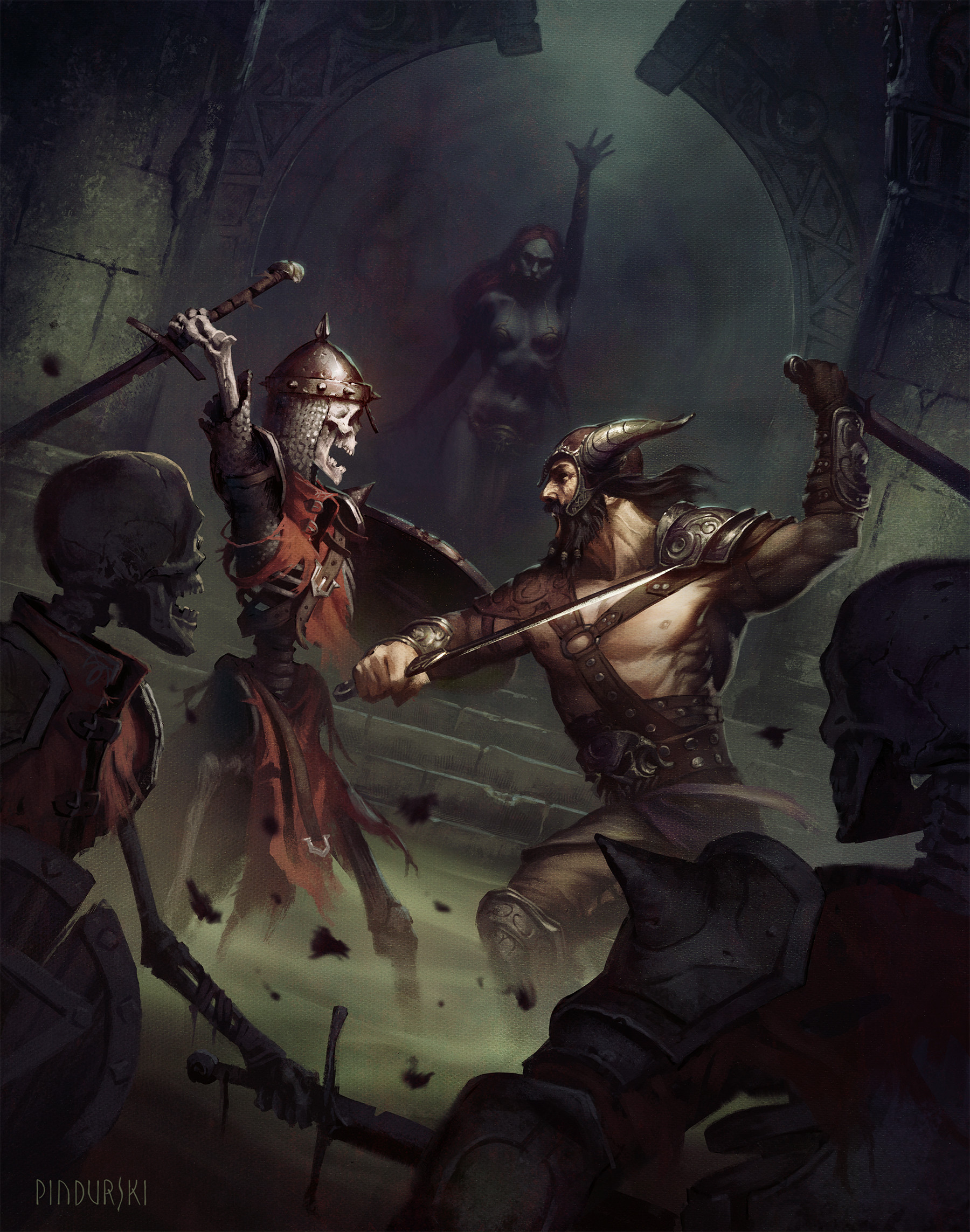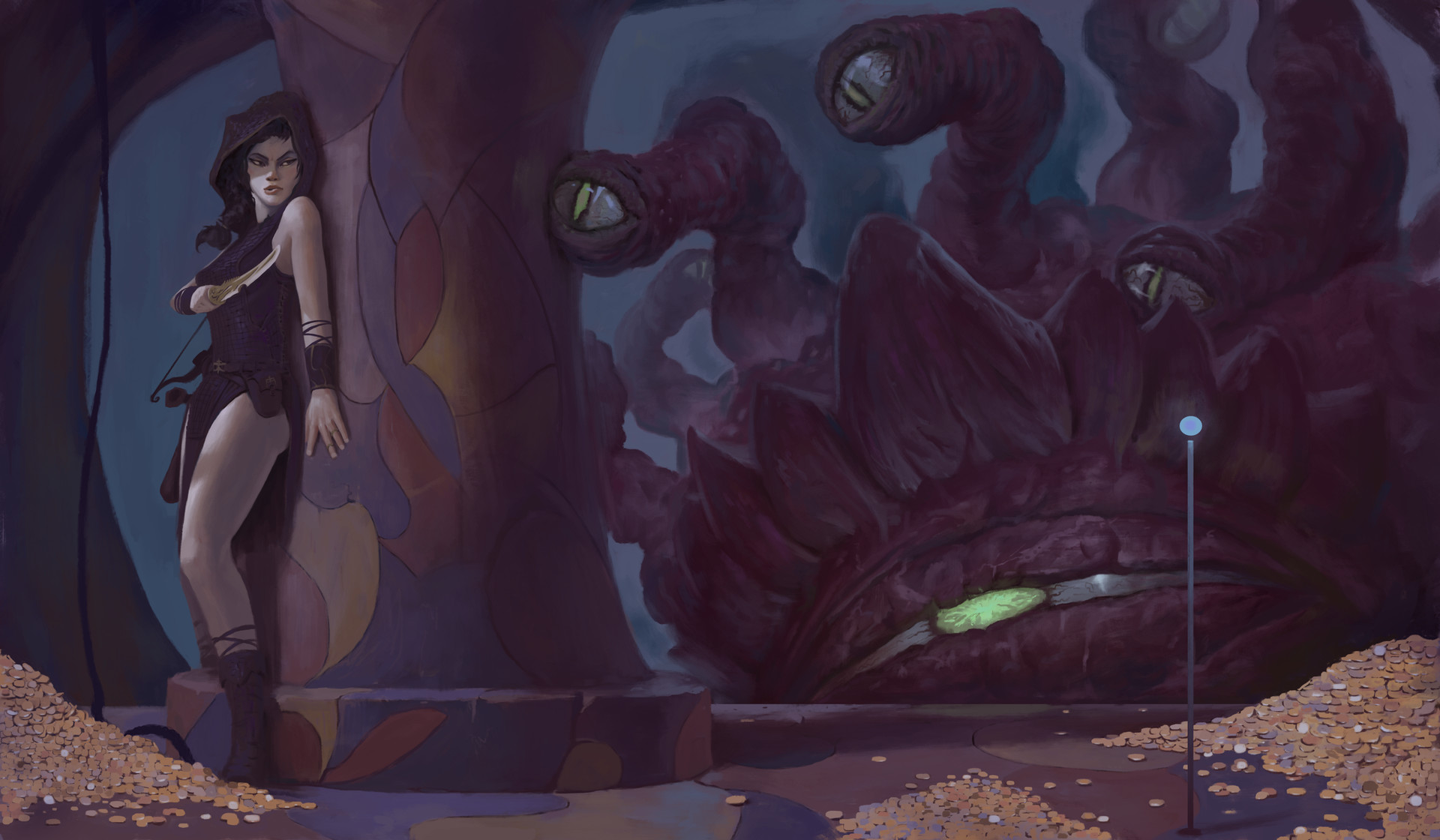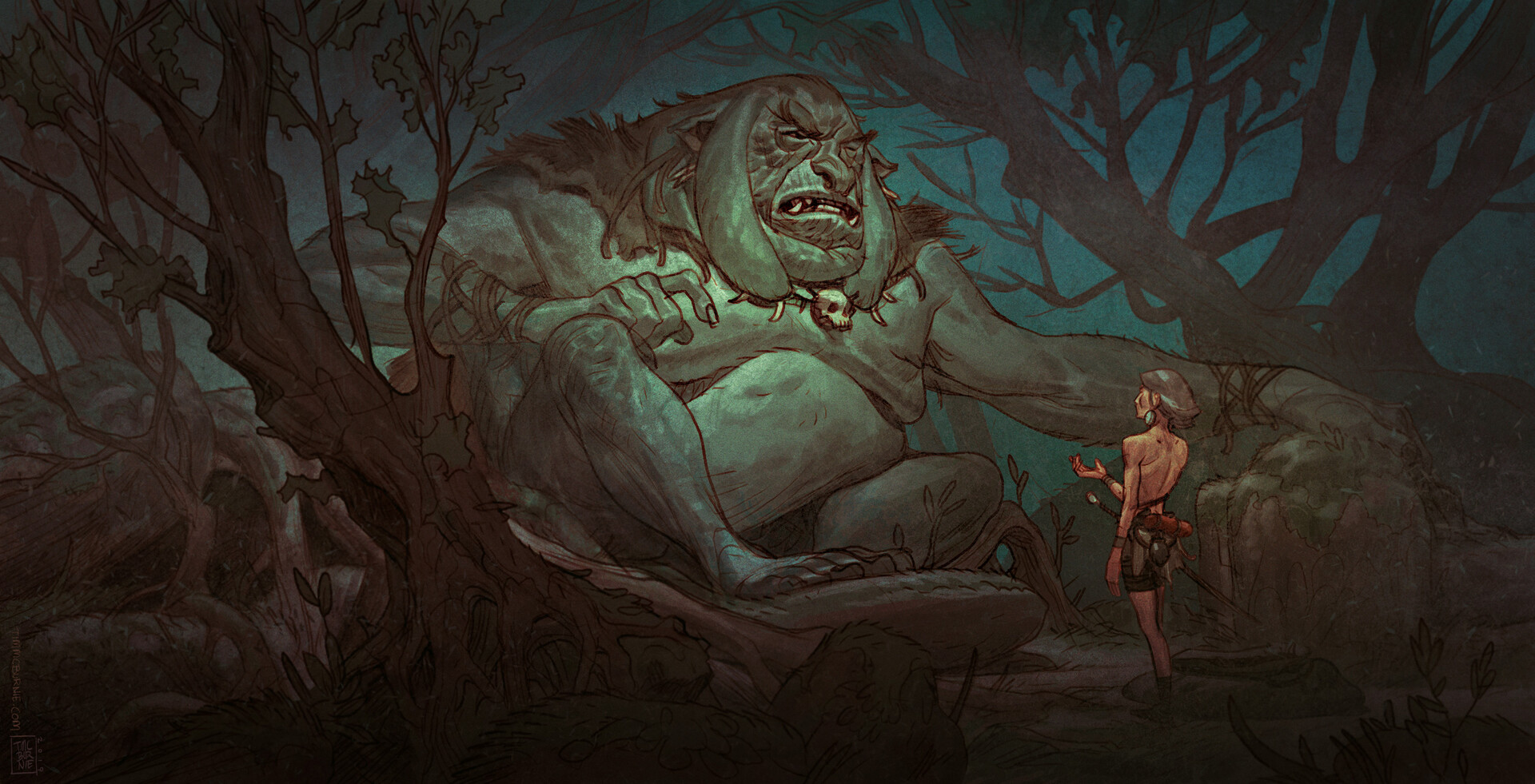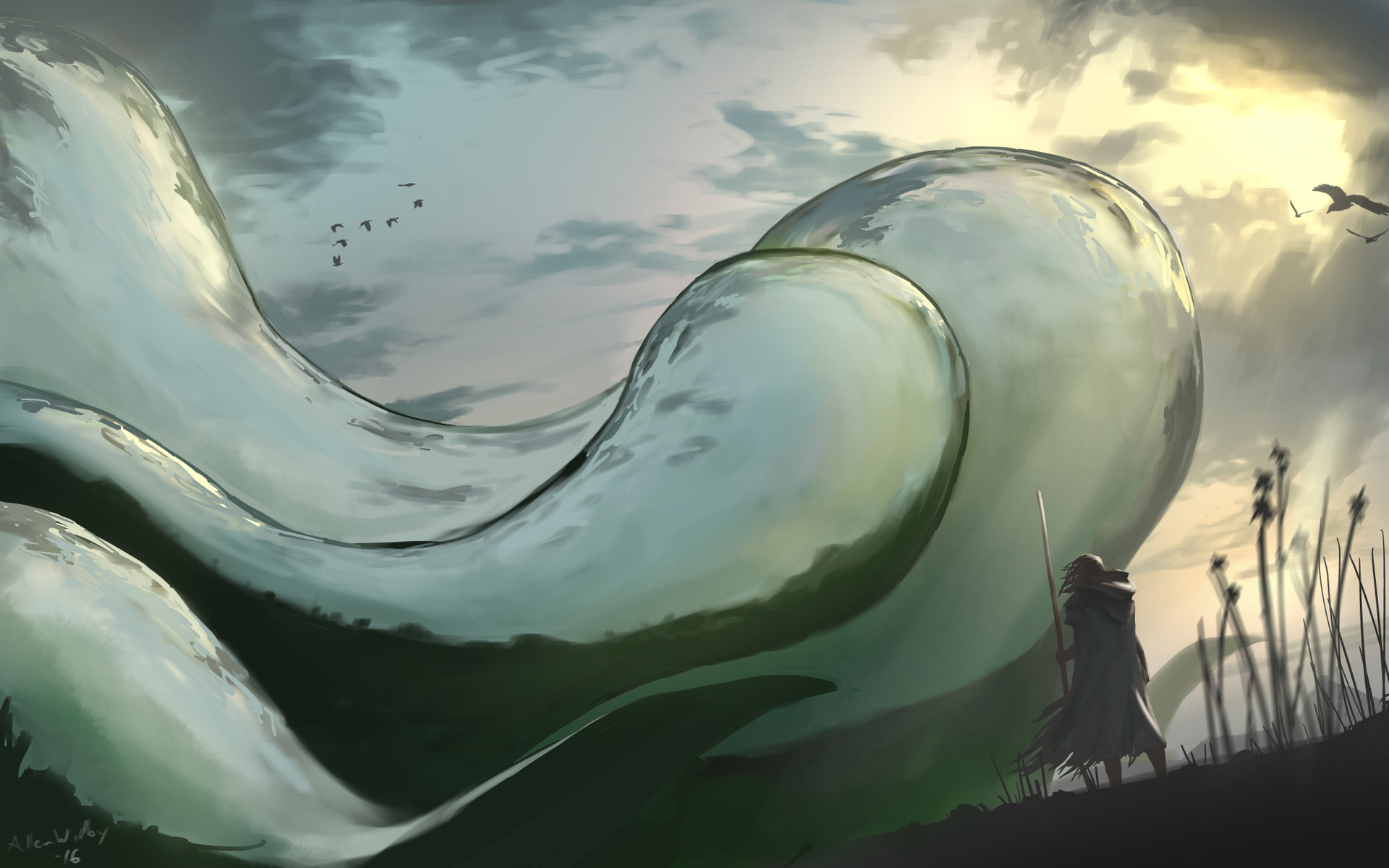 |
| Rule Intention doesn't dictate how your game has to be played. |
ON 5E AND COMBAT
It's no secret that 5E is a game whose core enjoyment is derived from combat. As written, players encounter monsters and they kill monsters and then they get experience and life continues. In opposition of this is the OSR, where combat is not the best option for every problem, even if it can often be a viable solution. In OSR games, this is true because the characters are fragile and because they have almost no tools beyond player creativity to take on problems. But in 5E, you have a litany of character features, most of which provide combat ability. Likewise, a common complaint is that 5E's death saves are too kind to player characters, and too safe.
This last point in particular is bullshit. Why? In Tomb of Annihilation, Death Saves are pushed to 15 instead of 10 for success. This gives you a near 75% chance that characters do not survive at 0 hit points. By having realistic monsters who go for the coup de grâce, falling to 0 quickly becomes a very dangerous place to live. And even beyond that, monster damage is variable, and it's suggested to use standard amounts. Usually the average damage is given for a monster, but there's no rule against using the maximum damage, or any value between average and the maximum. So now players, despite having bigger hit point pools, are being hit so hard as to make combat far more grueling. Thus, combats are now faster, and more dangerous for players.
You can go even further still. Have it so when a character comes back up from 0 hit points, they gain 1 level of Exhaustion. This is a fair use of Exhaustion and it makes it so combat gets harder and harder the longer players press on through a dungeon or the wilderness.
These changes make it so players can still desire combat and see it as a viable option, but it is certainly not the best option in every encounter. Assassination, roleplaying to dissuade enemies from combat, and sneaking past encounters all become more attractive in the wake of this more grueling combat paradigm. Thus, players handling obstacles through a more OSR-oriented perspective is achieved.
One more complaint I see before moving on to the next section; people hate CR. I hate CR. Remember that CR is a guideline. In other words, ignore CR and just read the stat block and use that.
 |
| Just because you can cast Fly doesn't mean you can easily get out of this. |
ON FEATURES VERSUS PLAYER INGENUITY
There's a common false-narrative perpetuated that having more features takes away from player skill. This is not true. In an OSR game, your features is the horde of equipment and hirelings you have with you. Tactical use of both equipment and hirelings is nothing more or less than just a different suite of features. Compare this to 5E where there are no hirelings, and where equipment is, overall, just an accent or means to an end. Instead, 5E offers the aforementioned litany of features to use. Access to features is not a point of argument against tactility. How a Cleric manages their spells and Channel Divinity options, how a Druid invokes their Wildshape, and when a Fighter chooses to finally Action Surge are all tactical decisions the same as when you light that pitch on fire that goblins are charging through or when the wizard chooses to finally blow their one, single (and usually useless) spell slot.
A common argument is that having more features limits what you can and cannot do. However, unlike B/X, thief skills aren't limited to just thieves in 5E, and sub-classes allow casters to sacrifice some spell ability for martial combat (and vice-versa). In other words, though it seems limiting, most of what happens in 5E does not strip options from everyone else. This is not to say that some things are cut off. Class fantasy will always take what an ur-Adventurer, like Conan or Elric, and split them up between the PCs themselves. Unless a classless system is opted for this is a simple reality that must be faced. Tangent aside, while more crunchy, 5E's multi-classing, sub-classes, and more feature-heavy classes is not a strong argument for a lack of player ingenuity. How you choose to use your features, when you choose to use them, and the potential to still have hirelings and make equipment meaningful only serves to put more focus on how player's ingeniously operate.
One flaw, though, is character builds. This is inescapable. OSR relies a lot on randomization to prevent this. This is something I'm willing to compromise on. Thematic character builds are what my player's produce overtime, with decisions influenced on what happens in their games, what NPCs they meet, and so on.
 |
| If you can't talk your way out of the troll, using Skills as a last ditch attempt isn't all bad. |
ON SKILL SYSTEMS
5E's skill systems aren't the system's strongest aspect. Still, skills aren't all that bad. I ask for skill checks only when a plan the players are putting into action is utterly terrible, has an incredible chance or failure, or to mechanically punish during the adventure. Skills are, for me, kind of like saves in this aspect. I also only ask for a skill check. My players tell me what they want to do, and if I think it doesn't need a check to go through, or if the plan is really solid, I have no problem letting these situations play out without dice. Skills are thus the least offensive thing in 5E for O5R play style, as it's just an issue of play style.
ON GOLD AS XP
5E milestones allow the DM to reward player's milestones, which are cashed in for leveling up. This is an easy use for Gold as XP. For every X amount of GP worth of treasure taken from a dangerous place, you get a milestone. Cash the milestones in, level up. Easy!
 |
| There's more rules than in OSE, but that doesn't mean these rules can't create a cruel experience. |
ON CHALLENGING PLAYERS
So, how do you challenge players without combat in a combat-heavy system like 5E? WotC has provided ample ways to do this.
First, traps are obvious, but Xanathar's Guide to Everything introduces rules for complex traps. These traps are elaborate encounters with lots of moving parts that allow players to use their many features to save their lives and escape the trap.
Puzzles and riddles, common in all forms of Fantasy, are always viable.
Environmental hazards are offered in the DMG. Beyond falls, rushing rivers, etc, you have various oozes and other horrific things that a fantasy environment can contain that'll frustrate players, steal their resources, and provide lethality.
For Long Rests, a big point of continent for a lot of OSR fans, simply saying that they can only be taken in "Sanctuaries"--safe rooms, cities, holy places, etc, makes it so players don't stay topped out on hit points 24/7 and have to be careful with what they're doing in terms of their own resource-based abilities.
Lastly, Exhaustion. Throw in a level for when players fail a saving throw to some environmental effect. Throw in a level if they've gone too long without a proper Long Rest. Throw in a level for when they come back from 0 hit points. Throw in a level for when they haven't eaten in a while, or had water. Throw in a level for every day they spent wandering lost.
RECAP
5E can be ran through an OSR mindset pretty easily. I'm not saying it is an OSR game. What I am saying is that O5R is a viable practice that channels a lot of OSR mindset to make running 5E a lot more palpable for those who like a more grueling style of play.
I think you're totally on point with this (self-promotion plug I wrote an article for High Level Games with a very similar theme: https://www.highlevelgames.ca/blog/4-reasons-why-your-game-and-mine-are-less-different-than-you-think)
ReplyDeleteI recently played in a 5e oneshot, and it was the first time I had played 5e in several years, and after having gone so long not playing it or pathfinder (what I've collectively been calling D&D 3.+), I was pleasantly surprised. It was overwhelming at first trying to put my character together, and I could never get past the nagging suspicion that my character was poorly optimized, but I forgot how much fun it can be to make "character builds", and how satisfying it is to use those D&D 3.+ features and combat abilities. It's ultimately still not my kind of game, if I want that kind of button-press satisfaction (as lungfungus of melancholies & mirth would put it) I would rather just play a videogame, but still I'm glad to say that I've somewhat come around on that style of play again.
Cool blog.
ReplyDeleteOne of the other things about 5e is that the 'implied world' is a lot more high magic than OSR, as every race can be any class and so have access to a lot more variety of combos.
So if its O5R I prefer to limit the race and classes a lot to mainly humans, and one kind of 'arcane' magic (Sorceror, wizard OR warlock).
The ARt is great in this article - where did you get the Beholder and troll ones!?
Best
Are you tired of being human, having talented brain turning to a vampire in a good posture in ten minutes, Do you want to have power and influence over others, To be charming and desirable, To have wealth, health, without delaying in a good human posture and becoming an immortal? If yes, these your chance. It's a world of vampire where life get easier,We have made so many persons vampires and have turned them rich, You will assured long life and prosperity, You shall be made to be very sensitive to mental alertness, Stronger and also very fast, You will not be restricted to walking at night only even at the very middle of broad day light you will be made to walk, This is an opportunity to have the human vampire virus to perform in a good posture. If you are interested contact us on Vampirelord7878@gmail.com
ReplyDelete